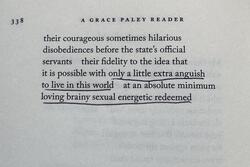The abortion/Holocaust analogy and the reality of abortion during the Holocaust
A few months ago, a friend of mine told me about a screening of the film "180" at her university. It was being hosted by the campus anti-choice group (the event would also include snacks, which we joked would be 'fetus flavored popcorn'). The film is one of several which compare abortion to the Holocaust.
The more dramatic the comparison, of course, the more likely it is to overwhelm people and distract them from their ability to think clearly about it. The argument that permeates "180," which features a whole bunch of college aged students who don't know who Hitler was, is that making the association between choice and abortion is the same as saying that one should excuse the Holocaust, since it was with state sanctioned autonomy that Hitler instituted the mass execution of Jews and other populations.
On the 39th anniversary of Roe v. Wade, it's important to take note of how the anti-choice movement is utilizing this tactic more and more, and expanding it. This isn't a new trope, it's simply another vehicle, similar to that of who brought you the infamous billboard stating: "The Most Dangerous Place for an African American Baby is in the Womb." Apparently, the way to get people on your side is to draw an irrational and offensive parallel between a genocide and human rights violation (i.e. slavery or eugenics) and the right of a woman to control her own bodily autonomy and life. Remove the "guise" that abortion is about the human right of women to choose to be pregnant, and replace it with the idea that a mass murder is going on that's tantamount to the attempt to literally wipe out whole populations.
Two weeks ago, the finalists and winners of the 2011 National Jewish Book Award were announced. Among the finalists in the Women's Studies category is Sexual Violence against Jewish Women during the Holocaust, edited by Sonja M. Hedgepeth and Rochelle G. Saidel. The fact that rape took place during the Holocaust isn't surprising; we know rape and other forms of sexual violence to be a tool in subjugating women and by extension, entire communities.
This was the first book I'd ever heard of that interrogated and exposed the topic specifically, leading me to Gisella Perl, a Jewish, religiously observant gynecologist who performed abortions while imprisoned in Auschwitz. Without medical supplies or hygenic conditions, Perl saved the lives of pregnant women who otherwise would have been sent to Mengele's laboratory for medical experiments and then to the gas chambers and/or the crematorium.
When I read about Perl, I thought, this has got to complicate the thinking of the folks who would liken abortion to the Holocaust...right? (Spoiler: wrong.) Rhoblogspot.com, an antichoice blog featuring a graphic that says, "Abortion is a Holocaust, Not a Final Solution," above a picture of the Supreme Court, "analyzes" the "case" of Dr. Perl, and comes to the following conclusions:
-
There is no situation where abortion is morally obligatory, including Dr Perl’s situation in Auschwitz.
-
There is no situation where abortion is morally permissible, though there may be mitigating circumstances that reduce moral culpability in rare, extreme situations.
In short, they believe the fact that Dr. Perl saved the lives of women who would have literally been tortured to death by medical experiments, if not sent directly to the gas chambers, is not as important as the fact that she performed abortions, making her at best morally bankrupt.
For me, what's terribly complicated about Perl's predicament is that women ultimately were coerced into choosing, instead of having the opportunity to decide whether or not to stay pregnant. (This is all undoubtedly made more thorny by acknowledging the reality of rape and other forms of sexual violence during the Holocaust.)
Once again, we can see through the veneer: this isn't about the lives of children, it's about asserting control-over a narrative, over religion (Christianity is the lens through which the anti-choice movement more often operates), and over the autonomy of women.








Really good article until the last paragraph:
'we can see through the veneer: this isn't about the lives of children, it's about asserting control-over a narrative'
Um no sorry that clearly is not the case. To be anti-abortion is because it is regarded as infanticide of the pre-natal child.
I really liked this post until "women ultimately were coerced into choosing, instead of having the opportunity to decide whether or not to stay pregnant." Do you honestly think any woman would have wanted to give birth in concentration camp? I sincerely doubt any of the women Dr. Perl, zt"l, gave abortions to felt coerced into it.
In reply to <p>I really liked this post by Talia bat Pessi
You are misinformed. There were plenty, and get a copy of Born Survivors, which details the lives of the mothers and their children that survived the holocaust.